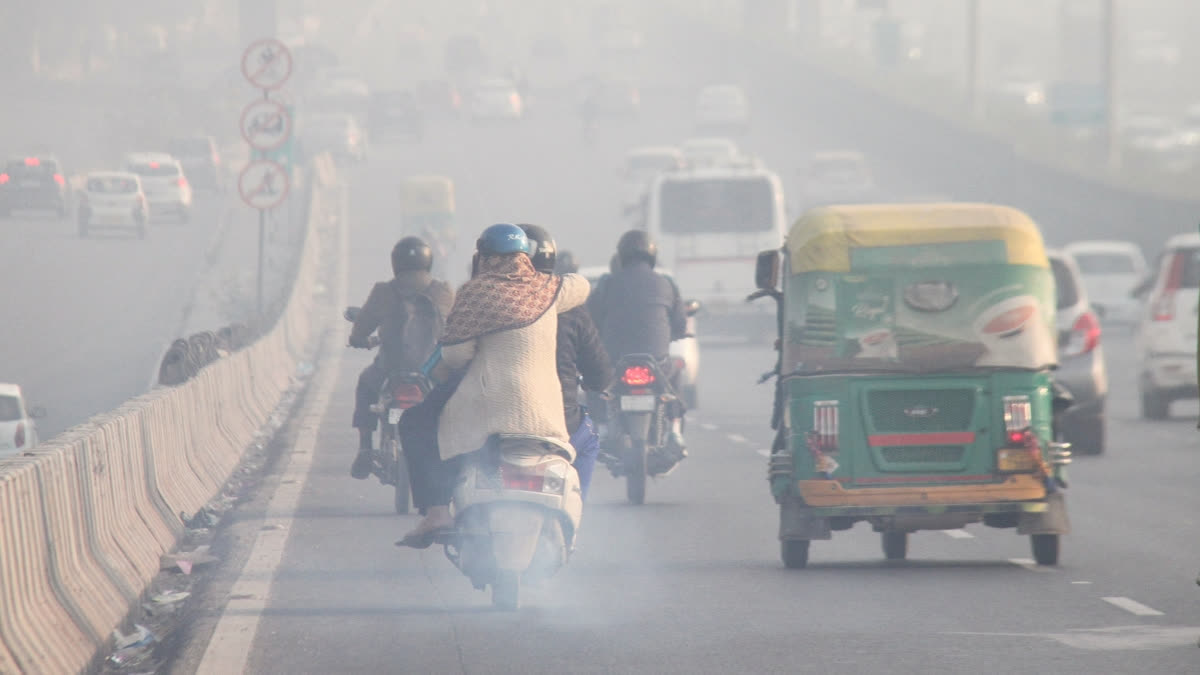New Delhi: Delhi residents experienced a rare respite from toxic pollution levels as the city’s Air Quality Index (AQI) remained in the 'poor' category for the third consecutive day, recording a reading of 235 on Wednesday. This marked a significant improvement after over a month of consistently 'very poor' air quality, providing a brief sense of relief to the city’s 30 million residents.
Environment expert Manu Singh explained the factors contributing to the temporary improvement. Speaking to ETV Bharat, Sharma said, “After 34 days of ‘very poor’ AQI, Delhi has finally seen a drop to the ‘poor’ category, with an AQI of 273.
While this is a slight relief, it’s important to note that the improvement is not due to stricter implementation of pollution-control measures but the dry northwesterly winds that have helped disperse pollutants.” Singh also highlighted the Supreme Court’s continued refusal to relax pollution-control norms, citing poor enforcement of existing rules.
#WATCH | Drone visuals from Moti Bagh area in Delhi this morning, captured around 7.10 am. As per IMD, the city is recording a minimum temperature of 11°C today with mist in the air.
— ANI (@ANI) December 4, 2024
As per the Central Pollution Control Board, the air quality around the area is in 'Moderate'… pic.twitter.com/3PPHsMmiou
Mixed Air Quality Across Delhi: On Tuesday, five out of Delhi’s 37 air quality monitoring stations recorded 'very poor' air quality, while the rest were in the 'poor' category, as per the Central Pollution Control Board’s (CPCB) Sameer app. The CPCB classifies AQI readings between 201-300 as 'poor' and 301-400 as 'very poor'. PM2.5 levels in the city stood at 105 µg/m³, and PM10 levels at 204 µg/m³.
Meteorological conditions also played a role in the recent improvement. Light northwesterly winds persisted until Wednesday evening, aiding in dispersing pollutants. However, forecasters warn of smog and mist in the evenings and 'poor' air quality persisting from Tuesday to Thursday. Daytime temperatures reached 28.2°C, with a minimum of 10.5°C.
Lingering Concerns: While the current improvement is a positive development, experts caution that it is temporary. Without stringent enforcement of pollution-control measures and sustainable policies to address emissions from vehicles, industries, and stubble burning, Delhi’s air quality is expected to deteriorate again as winter progresses.
The need for consistent updates from tools like the Decision Support System (DSS) is also critical for monitoring and addressing pollution sources effectively. For now, Delhiites are breathing a little easier, but the long road to clean air remains fraught with challenges.
Read More:



